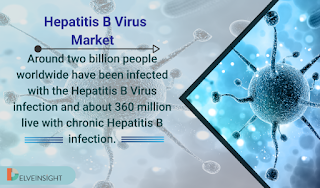Bio-Similar Market
Biologics or biomedical products
are medicines that are developed from living organisms through highly complex
manufacturing processes. Biosimilar is a biological product that are similar to
another medicinal product often known as reference product. Precisely speaking,
Biosimilars are generic versions of the patented drugs.
What the Biosimilar drugs market holds?
The process of development of Biosimilar
is same as that of the other drugs. The phases of clinical trials, the approval
and then the commercialization. These products impact significantly on the
pharmaceutical market since they are cost effective and are equally efficient.
Due to a hike in approvals from FDA in its aim to make drugs available to
common man, the Biosimilar drugs market is gaining momentum. These approvals
not only present a wide range of treatment options for severe conditions
available to patient pool but also at affordable rates. Without a doubt, the
largest driver behind the Biosimilar drugs market is the need for the
affordable treatment options.
More than 100 pharma companies
are investing themselves in the development of Biosimilar drugs. Key pharma
players including Novartis, Amgen and Eli Lilly have found success in getting
their biosimilar drugs approved.
Zarxio- The first Biosimilar to get approved
Filgrastim-sndz (Zarxio) is the
first biosimilar product approved by the Food and Drug Administration (FDA). Manufactured
by Sandoz, Inc, it’s a biosimilar to Amgen Inc’s Neupogen (filgrastim), which
was originally approved in 1991. Zarxio was approved for treatment of same
disorders as that of Neupogen. Patients receiving myelosuppressive
chemotherapy; those with acute myeloid leukemia receiving induction or
consolidation chemotherapy; patients undergoing bone marrow transplantation;
those undergoing autologous peripheral blood progenitor cell collection and
therapy; and those with severe chronic neutropenia, were the ones who got
benefitted from the approval of Zarxio.
Granix: Another Biosimilar to Neupogen
Granix, another Biosimilar to Neupogen,
it was approved to treat neutropenia, low white blood cells caused by receiving
cancer treatment with chemotherapy.
After Zarxio, Inflectra got lucky
After Zarxio, Inflectra
(infliximab-dyyb) developed by Celltrion became the second Biosimilar to get
approval in the US. It is a biosimilar to Janssen’s Remicade (infliximab), and
is approved to treat rheumatoid arthritis, Crohn’s disease, ankylosing
spondylitis (spine arthritis), ulcerative colitis, psoriatic arthritis, and
plaque psoriasis.
In April 2017, the FDA approved
the second biosimilar to Remicade (infliximab), Renflexis (infliximab-abda), a
tumor necrosis factor (TNF) blocker from Samsung Bioepis.
Biosimilars to Humira
Another Biosimilar to get
approval was Amjevita in the year 2016 for the blockbuster Humira (adalimumab).
Approved to treat several serious disorders, it is a tumor necrosis factor
(TNF) blocker and is administered subcutaneously via injection. The drug was
approved to treat Rheumatoid Arthritis (RA), Juvenile Idiopathic Arthritis(JIA), Psoriatic Arthritis (PsA), Ankylosing Spondylitis (AS), Adult Crohn’s
Disease (CD), Ulcerative Colitis (UC) and Plaque Psoriasis (Ps).
In the year 2018, Sandoz's
Hyrimoz (adalimumab-adaz) was recommenede by the FDA as the third U.S.
biosimilar to AbbVie’s Humira, after the clearance of Cyltezo (adalimumab-adbm)
in 2017.
And many more Biosimilars are
available in the market to make it easy for the patients to live a better
qualitative life.


Comments
Post a Comment